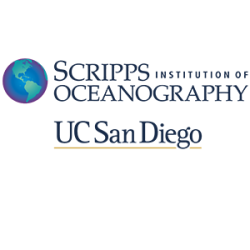Speaker Details


Bruce Appelgate
Appelgate has executive responsibility for the management of the SIO fleet of research vessels and the scientific capabilities aboard them. This includes administrative and support activities at the Scripps Nimitz Marine Facility, expedition scheduling and planning and oceanographic technical services. He also manages the UC Ship Funds Program and supervises the Scripps programs in Scientific Diving, Scientific Boating and the Marine Science Development Center. Appelgate is the Scripps representative and chair-elect to the University-National Oceanographic Laboratory System (UNOLS). He holds a PhD in marine geology and geophysics from the University of Hawaii, with 39 years of experience as a seagoing scientist, and has participated in 105 expeditions aboard oceanographic and marine geophysical research surveys as principal investigator, chief scientist, co-chief scientist, survey chief, expedition leader, geophysicist and marine technician, aboard thirty-seven different research and survey vessels.Presentation
Development of a zero-emission hydrogen hybrid oceangoing research vessel at Scripps Institution of Oceanography – UC San Diego
The hybrid-hydrogen design of this new vessel represents an innovation in the maritime industry. Currently, conventional diesel engines on ships emit greenhouse gases and criteria pollutants. Development of this and subsequent zero-emission vessels is essential to the University of California’s Carbon Neutrality Initiative. This new vessel will feature an innovative hybrid propulsion system that integrates hydrogen fuel cells alongside a conventional diesel-electric power plant, enabling zero-emission operations. The design is scaled so the ship will be able to operate 75% of its missions entirely using liquid hydrogen fuel. For longer missions, extra power will be provided by clean-running modern diesel generators, with a plan to replace those with methanol when technically feasible, to eliminate fossil fuels from the vessel entirely. The vessel represents a major step in advancing California's pledge to reduce global climate risk while transitioning to a carbon-neutral economy.
